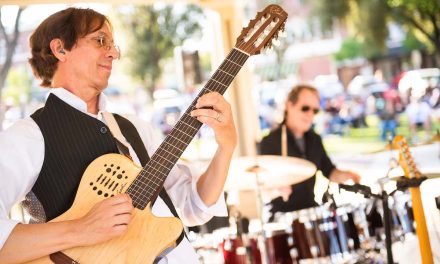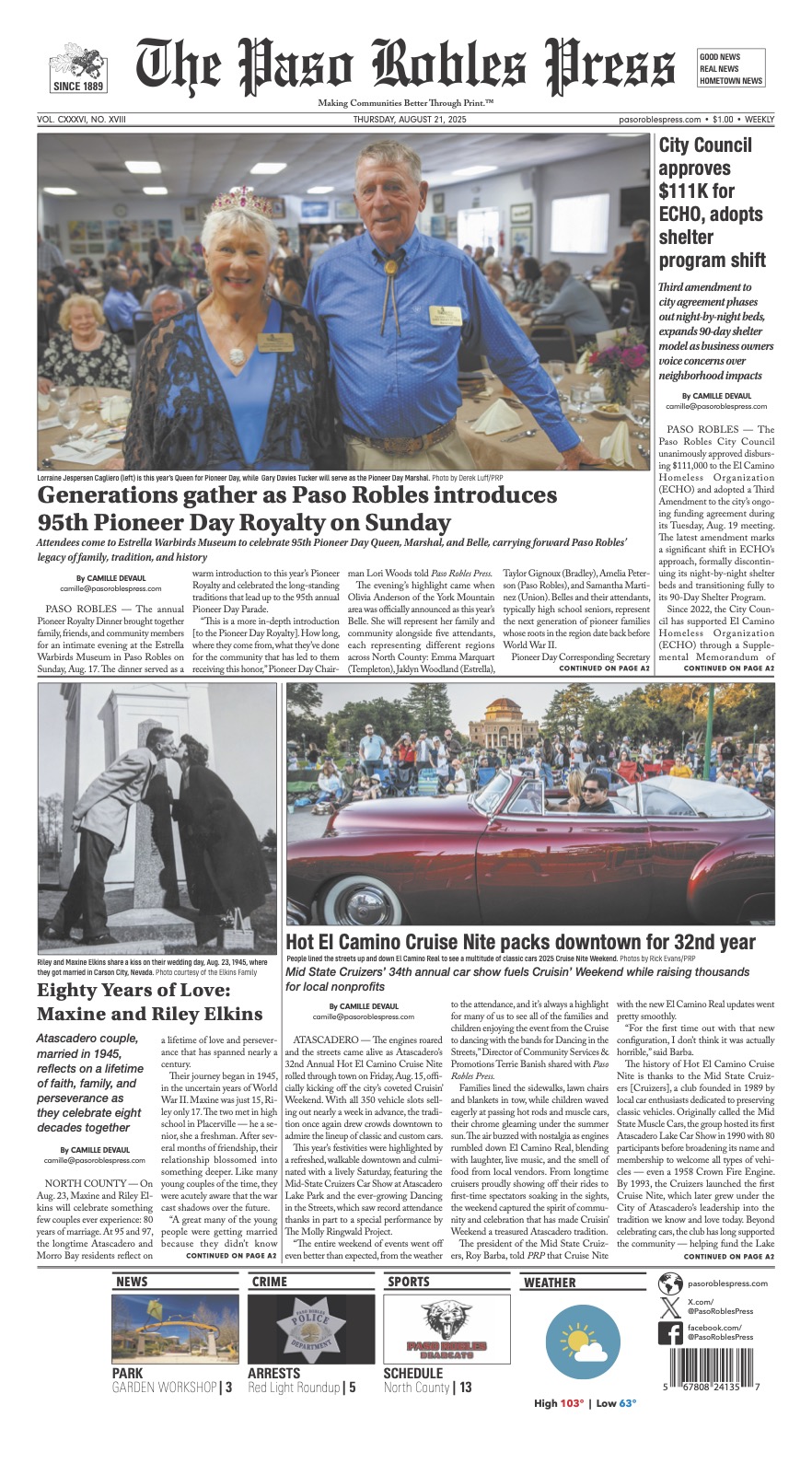Ignacy Jan Paderewski was born on November 6, 1860. As an infant, he lost his mother. At age four, his father, Jan, was imprisoned by the invading army of the Russian Empire. This early traumatic experience seared into the boy a deep connection with his Polish heritage.
Paderewski was a musical prodigy who traveled from the far-away Province of Podolia to enroll at the Warsaw Conservatory. He later studied in Berlin and Vienna, launching his worldwide career after a spectacularly successful debut in Paris in 1888.
At the height of Paderewski mania, his mass appeal elicited adoration and worldwide fame, and his breakneck performance and railway travel schedule foreshadowed today’s jet-setting concert tours.
During his first U.S. tour (1891-1892), Paderewski played 107 concerts in 117 days, netting $160,000—well over $4 million in today’s dollars. Overall, he made twenty tours of North America, his last in 1939, when he was 79.
Paderewski in Paso Robles
During his 1913-1914 tour, Paderewski’s nagging neuritis drew him to Paso Robles to seek out the restorative waters of the area’s mineral springs. He resided at the El Paso de Robles Hotel (rebuilt in 1942 as the Paso Robles Inn), in an elegant second-floor suite. Dr. Frank Sawyer, who worked as a hotel manager, physician and realtor, sold Paderewski on the idea of purchasing land in Paso Robles, and over the next three years, the pianist acquired 2,864 acres of rancho properties on which he established vineyards and almond orchards.
Paderewski worked with pioneering viticulturist and enologist Frederic T. Bioletti. He also hired a Polish farm manager, Jan “Gunnysack” Gnieciak, who worked a local almond legend, William “Daddy” Hemphill. Armed with their expertise, Paderewski developed a vineyard and produced wine at York Mountain Winery. With time, Paderewski’s zinfandel became one of America’s favorite varietals. Between 1914 and 1939, Paderewski stopped for a few weeks of rest in Paso Robles during his American tours.
The cause of democracy
After the outbreak of World War I, Paderewski leveraged his fame to aid his homeland. In 1915, he founded the Polish Victims Relief Fund, a War Victims Assistance Committee in Poland that received significant political and financial support from American Poles. Mobilizing a diaspora of four million Polish immigrants, Paderewski served as a Polish National Committee delegate to Washington. His unprecedented political achievements were recognized with awarded honorary doctorate degrees from Yale, Oxford, Columbia, Cambridge, and University of Southern California.
Fluent in seven languages and buoyed by good fortune, Paderewski lavished his generosity on both individuals and causes. In America, he cultivated friendships with President Woodrow Wilson, high-level government officials, and social elites. He funded scholarships for young American composers, supported WW I veterans, and in 1932 donated $37,000 to unemployed musicians in America. Monuments that Paderewski financed in Europe and America include a statue to commemorate the Battle of Grunwald, memorials to Debussy, Chopin, Liszt and Beethoven, and the Washington Square Arch in New York City, an 1892 landmark that still stands.
Polish sovereignty and legacy
In January of 1919, Paderewski represented Poland as its delegate at the Paris Peace Conference in Versailles that reshaped European boundaries and systems of governance. Paderewski, the son of an estate administrator and President Woodrow Wilson, the son of a
Presbyterian preacher, shared a strong belief in democratic forms of government. It was Paderewski’s memorandum to Wilson in 1917 that supported Polish independence as the thirteenth of Wilson’s Fourteen Points:
“An independent Polish state should be erected which should include the territories inhabited by indisputably Polish populations, which should be assured a free and secure access to the sea, and whose political and economic independence and territorial integrity should be guaranteed by international covenant.”
In December of 1918, British Foreign Secretary Arthur Balfour urged Paderewski to undertake the daunting task of uniting a liberated Polish nation as its first Prime
Minister. Paderewski agreed and quickly drew the support of the allied United States, Great Britain, France and Italy. Within a year,
Paderewski restored democratic elections to Poland and established a Polish national army.
The reinstatement of the Republic of Poland after 123 years of partitions was a brief but a pivotal moment in the hearts of the Polish people. A country long torn by tyranny suffered again in 1939 when Nazi Germany invaded Poland to initiate World War II. Paderewski responded by creating the Paderewski Testimonial Fund for Polish Relief.
In 1940, Paderewski arrived in America for his final visit, warning the U.S. politicians and the nation about the danger of Hitler’s Germany. His last speech to WWI veterans was on June 22, 1941. A week later, Paderewski died in New York City of pneumonia. A friend to all U.S. Presidents, from McKinley to FDR, and a champion of the common man, Paderewski was revered throughout America not only for his musical talents but also admired as a statesman, philanthropist, and advocate for a free Poland.
On the tenth anniversary of Poland’s independence in 1928, President Wilson’s widow, Edith, wrote of Paderewski:
“This inspired patriot became the servant of his people, lighting the torch at the altar of sacrifice, where its steady flame will burn forever to the glory of his beloved Poland, and lend new luster to his name written deep within the hearts of all men.”
A century later, Ignacy Jan Paderewski’s bronze likeness gazes across City Park from Carnegie Library, directly across the street from where he practiced the piano at the Paso Robles Inn.
The Paderewski Festival in Paso Robles continues to honor the musician, statesman, philanthropist, and freedom fighter, who called Paso Robles his California home.
Like this article? Send Melissa Chavez a note, melissa@pasomagazine.com











